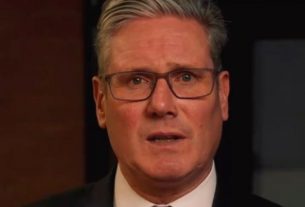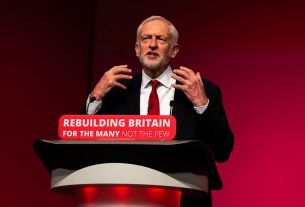The government has been accused of “a betrayal of millions’” over their £3.5 billion fund to fix the cladding scandal that has left leaseholders in debt and limbo since the Grenfell fire, more than three and a half years ago.
Politicians from all parties joined homeowners and campaigners to condemn the government’s £3.5 billion fund to remove unsafe cladding from high-rise residential buildings over 18 metres or six stories, unveiled today by Robert Jenrick.
The secretary of state for housing, communities and local government tweeted: “Today I announced the biggest ever investment in building safety, with the Government paying for the removal of all unsafe cladding on high-rise residential buildings.
“Our five-point plan will provide certainty to homeowners and provide confidence to the housing market, while protecting hundreds of thousands of leaseholders. Our multi-billion pound package will ensure funding is targeted at the highest risk buildings – in line with longstanding independent expert advice and evidence.”
Far from solving the cladding issue, Jenrick’s announcement has been roundly condemned. “This feels like a betrayal,” said Paul Afshar, a spokesperson for the End Our Cladding Scandal campaign. “We are talking about hundreds of thousands, if not millions of people living in lower-rise flats who have the same problem today that they woke up with yesterday.”
Leaseholders in shorter blocks will have to pay for the cladding to be removed. Furthermore, no funds are available to remedy any safety defects revealed when the cladding is removed.
The government said they can borrow to pay the costs and pay back the “low interest” loan with repayments capped at £50 per month. The Independent pointed out that with remedy costs “easily reaching £40,000 in many cases, those residents could paying off their debts for decades”.
‘A betrayal of millions and shocking incompetence,’ says Conservative MP
Pressure has been mounting on ministers to help homeowners hit by massive bills to improve buildings as well as punitive insurance for insure unsellable flats and apartments.
Conservative MPs have demanded Boris Johnson steps in to help leaseholders, with Stephen McPartland, MP for Stevenage and former chairman of the Commons regulatory reform committee, saying Jenrick’s announcement amounted to “smoke and mirrors”.
McPartland wondered how Jenrick “could have got this so wrong”. “It is a betrayal of millions of leaseholders. It is not good enough. It is shocking incompetence. It is clear the PM has to step in now,” he said. “No mention of fire safety defects, Waking Watches, or Excessive Insurance Premiums which are often the main costs for millions of leaseholders.”
Jenrick said the £3.5 billion package to remove cladding will be funded by a new levy on developers of high rise buildings in England, on top of a UK-wide tax on the residential development sector that will raise £2 billion.
‘It’s heartbreaking,’ says Grenfell United
“Too little, too late,” was the verdict of Grenfell United, a group of survivors and bereaved families who, “for over three and a half years” have “been raising the alarm that 1000s of people are living in unsafe homes and another Grenfell could happen at any time.
“It’s heartbreaking to say but once again today’s announcement is too little, too late.”
The group said the package does not address the fire issues that are becoming apparent in many buildings. “We needed something to deal with this mess once and for all – we didn’t get that today.
“Residents living in unsafe homes will go to bed tonight worrying if their building will qualify or be left out once again. And bereaved and survivors of Grenfell will lay awake fearful that what happened to us could still happen again.”
The fire at Grenfell Tower broke out on June 14, 2017 and claimed 72 lives. The BBC report today (Wednesday) from the public inquiry into the blaze, that the firm who sold the cladding used at the tower knew it was a fire risk, in 2013.
Bank of England governor warns of households to expect higher costs
Meanwhile Bank of England governor Andrew Bailey has warned UK households face higher finance costs with the EU “poised to lock Britain out of its vast banking market”.
The Telegraph reports the move would “push up the cost of finance for millions of consumers on both sides of the Channel” through higher mortgage interest rates, foreign currency costs and insurance premiums.
Bailey said locking the UK out of EU finance “would be a mistake” that would “lead to the fragmentation of markets”.
“The problem with the fragmentation of markets is that it raises the cost of finance for everybody, including by the way the citizens of the EU. It will raise the cost of doing business in the EU, so I think it is a mistake,” said Bailey.
Three (taxpayer funded) photographers and a prime minister’s dog
Elsewhere, photos of Dilyn, the prime minister’s dog have sparked a row over the employment of three photographers by Downing Street – at taxpayers’ expense.
Among images of ministers going about their duties to be uploaded to the Number 10’s Flickr account were a series of snaps showing Dilyn playing in the snow.
When quizzed as to whether paying for photos of a dog is an appropriate use of taxpayers’ money – the prime minister’s official spokesperson, James Slack said: “These photographers document the work of government, as well as the work inside No 10.”
The photographer is a “cross-government resource” who will “support other government departments in their work, and other cabinet ministers and ministers in the work they’re undertaking”, said Slack – who himself is moving to be the PM’s director of communications and will be replaced as PM’s official spokesperson by Max Blain in April this year.
An unnamed “new recruit” has become the third photographer on the “government payroll” which includes a Ministry of Defence photographer and Johnson’s longtime photographer and special adviser Andy Parsons – who the Guardian states: “works part-time on a pay rate equivalent to a full-time salary of £100,000 a year.”
iNews reported in December that Johnson’s “overhaul of Government aides” – which saw the departure of Dominic Cummings and Lee Cain from Downing Street – cost taxpayers £2.7 million in payoffs. In all 102 “spads” were employed by the government at an annual cost of £9.6 million.




